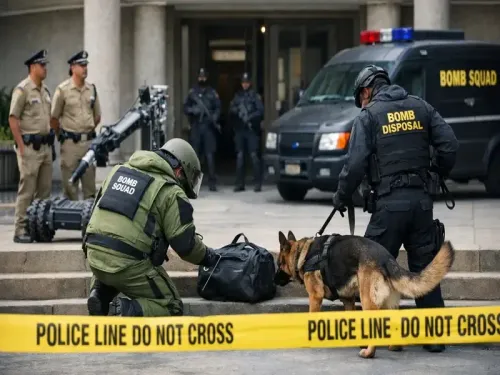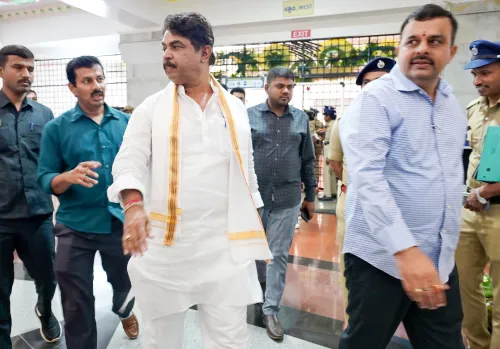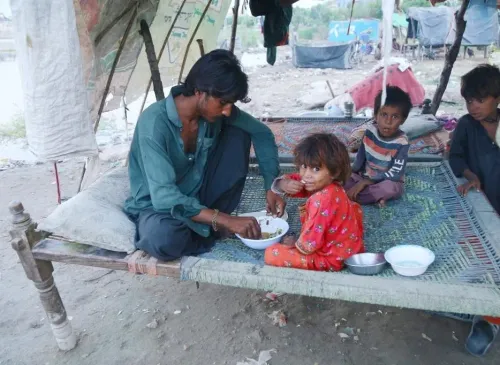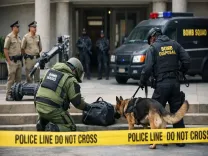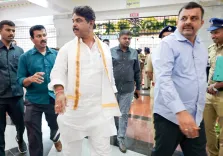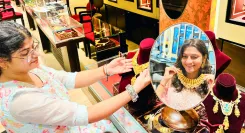How is West Bengal’s football passion exploited politically?
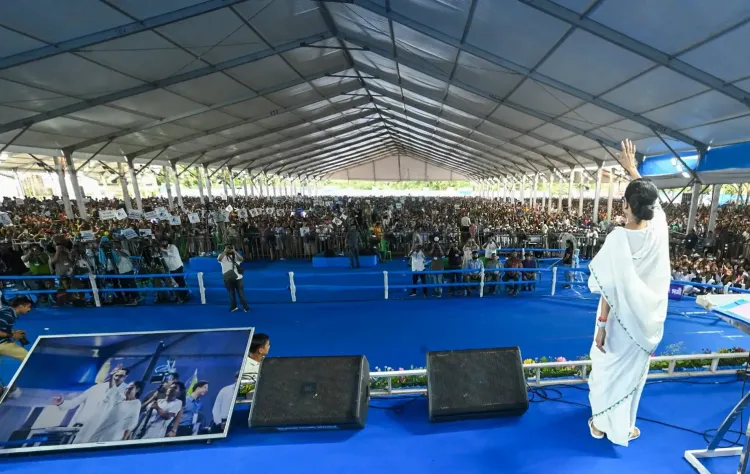
Synopsis
Key Takeaways
- West Bengal has a long-standing football culture.
- Political parties leverage football to enhance their campaigns.
- The slogan “Khela Hobe” resonates with youth.
- Football fosters regional pride and unity.
- Prominent leaders support local football initiatives.
Kolkata, Sep 12 (NationPress) The deep-rooted affinity of West Bengal for football presents a rich landscape for political narratives. Various political parties skillfully exploit this passion to disseminate their ideologies.
As the Assembly elections approach next year, the principal opposition party, the Bharatiya Janata Party (BJP), has entered the fray, while the state's sports ministry is also orchestrating its own tournament.
Although prominent leaders are not lacing up their football boots, they initiated their respective tournaments on Thursday, September 11, commemorating the anniversary of Swami Vivekananda’s iconic speech at the World Parliament of Religions in Chicago in 1893. Narendranath Datta was the monk-philosopher's birth name.
The BJP has introduced the Narendra Cup, which will culminate on September 17, coinciding with the birthday of Prime Minister Narendra Modi.
Simultaneously, the Swami Vivekananda Cup, organized by the state, will continue until March 2026, aligning with the forthcoming elections.
Notably, TMC leader Abhishek Banerjee serves as the chief patron of the Diamond Harbour Football Cup. His team gained attention this year by defeating East Bengal to reach the finals of the Durand Cup on its debut. Abhishek represents the Diamond Harbour constituency in the Lok Sabha.
His aunt, Chief Minister Mamata Banerjee, has historically supported major clubs during financial hardships and continues to provide funding to various sporting organizations.
The football culture in West Bengal dates back to the late 1800s when colonial Calcutta witnessed the rise of clubs that challenged British teams, culminating in Mohun Bagan’s groundbreaking victory in the 1911 IFA Shield.
Following this, the formation of the East Bengal club ignited a legendary rivalry between West Bengal natives and those with roots in the East (now Bangladesh).
Over the years, packed stadiums, fierce derbies, and local tournaments have cultivated a dedicated fan base. Football transcends class barriers, played on both village fields and urban arenas, symbolizing regional pride and unity.
The political landscape saw a new strategy with the emergence of the slogan “Khela Hobe” (Game On), promoted by the TMC in the run-up to the 2021 Assembly elections.
By framing elections as high-stakes matches, the TMC tapped into the competitive spirit of football and the promise of collective triumph.
“Khela Hobe”, crafted by TMC leader Debangshu Bhattacharya, gained widespread traction across social media and local events. This slogan invigorated supporters through chants, posters, and digital campaigns.
On August 16, 2021, the TMC marked “Khela Hobe Diwas” throughout West Bengal by organizing football matches. Mamata Banerjee selected this date to honor 16 individuals who lost their lives in a stampede during a football match on August 16, 1980.
“Khela Hobe” became a hallmark of TMC’s outreach to the youth in both urban and rural areas, reinforcing group identity through a shared cultural bond.
With another election cycle approaching, the game is truly on.


